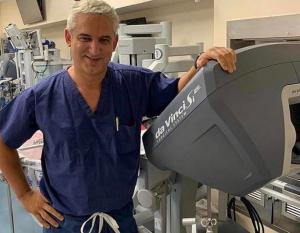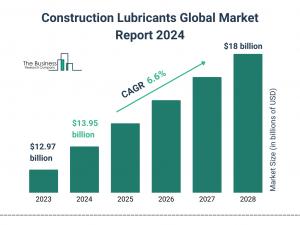US Secretary of Defense Lloyd Austin

Black men both get and die from prostate cancer at a higher rate than white men. The reasons are complex and not well-understood

The Ultimate MANual ranked no. 2 in BookAuthority’s Best Men’s Health Book available on Amazon
New York City prostate cancer surgeon, Dr. David Samadi, discusses prostatectomy technology after Secretary of Defense Lloyd Austin’s health scare
— Dr. David Samadi
NEW YORK CITY, NY, UNITED STATES, January 16, 2024 /EINPresswire.com/ — Last week witnessed a spotlight on prostate cancer surgery as US Defense Secretary Lloyd Austin, aged 70, underwent a robot-assisted prostatectomy for the removal and cure of his cancer at Walter Reed National Medical Center on December 22. The initial success of the surgery and subsequent complications leading to ICU readmission on January 1, 2024 for a urinary tract infection, drew much attention to Austin’s health trajectory, one of which involved some debate over the terms, “elective surgery” and “minimally invasive.”
But let us focus first on Secretary Austin’s prostate cancer diagnosis.
Black men and prostate cancer
While Austin’s family health history remains undisclosed, the potential role of ethnicity in prostate cancer development has been highlighted. Disturbing statistics reveal a 1.7 times higher likelihood for black men to be diagnosed and a 2.1 times higher risk of mortality than white men.(1) This stark contrast emphasizes the need for increased awareness and proactive health initiatives, positioning Austin as a potential advocate for encouraging black men to undergo prostate-specific antigen (PSA) blood tests, a screening tool for the early detection of prostate cancer.
The road to recovery for Austin includes ongoing treatment for a urinary tract infection, and our thoughts are with him for a swift and complete recovery.
Controversy over “elective surgery” and “minimally invasive”
Amidst the political firestorm over who knew what and when about Austin’s illness and hospitalizations, media attention has also focused on the terms, “elective surgery,” and “minimally invasive,” aspects of the robot-assisted prostatectomy undergone by Austin. There were many questions by news anchors asking how could this surgery be both an elective procedure let alone, also be minimally invasive?
Let me explain by addressing their concerns and putting to rest this misinformation some journalists got wrong by delving into the nuances of these terms:
• Elective surgery explained
Elective surgeries, unlike emergency surgeries (e.g., a ruptured appendix or severe trauma to the head, chest, abdomen, or extremities) are scheduled procedures vital to a person’s health and well-being. From cosmetic procedures to critical surgeries like hernia repair or removing a cancerous tumor from a woman’s breast or a cancerous prostate from a man, these procedures while not emergencies, play a crucial role in maintaining health.
Austin’s robot-assisted prostatectomy falls under this category as an elective surgery.
• Minimally invasive procedures demystified
In minimally invasive surgery, modern surgical techniques, including robotic-assisted laparoscopic prostatectomy, utilize smaller incisions for reduced trauma and blood loss.
The Da Vinci robot gives a prostate cancer surgeon an enlarged, 3D view of the surgical site allowing them enhanced visibility and better maneuverability to operate with precision and control. The benefits of this minimally invasive procedure for men include minimized trauma at the surgical site, reduced pain, shorter hospitalization stay, lowered risk of complications, as well as less blood loss and fewer transfusions.
Bottom line expertise matters leading to better outcomes
For men with prostate cancer who are considering robotic-assisted laparoscopic prostatectomy, the experience and training of the surgeon are paramount. Typically, the more procedures a surgeon performs the better their outcomes. Achieving goals of complete cancer removal, sexual potency preservation, and zero continence issues hinge on the surgeon’s proficiency.
Going through surgery is challenging. Men should feel confident and comfortable in their decisions based on their surgeon’s experience while undergoing surgery. Men who have a positive surgical experience are more likely to recover successfully.
Final thoughts
Despite navigating the medical term intricacies, the good news is Secretary Austin’s journey hopefully will serve as a catalyst kicking off conversations surrounding prostate cancer awareness for all men, elective surgeries for this disease, and taking advantage of advancements in minimally invasive procedures.
Men, other than skin cancer, prostate cancer is the most common cancer in American men and second leading cause of cancer death.(2) Have a baseline PSA blood test beginning at age 40. When found early, prostate cancer has an almost 98% cure rate – don’t be afraid, get tested.
References:
1. Zero Prostate Cancer. Black men and prostate cancer. Updated 2023.
2. American Cancer Society. Key Statistics for Prostate Cancer. Updated 2023. https://www.cancer.org/cancer/types/prostate-cancer/about/key-statistics.html
Dr. David Samadi is the Director of Men’s Health and Urologic Oncology at St. Francis Hospital in Long Island. He’s a renowned and highly successful board certified Urologic Oncologist Expert and Robotic Surgeon in New York City, regarded as one of the leading prostate surgeons in the U.S., with a vast expertise in prostate cancer treatment and Robotic-Assisted Laparoscopic Prostatectomy. Dr. Samadi is a medical contributor to NewsMax TV and is also the author of The Ultimate MANual, Dr. Samadi’s Guide to Men’s Health and Wellness, available online both on Amazon and Barnes & Noble. Visit Dr. Samadi’s websites at robotic oncology and prostate cancer 911.
David Samadi
Madison Urology
+1 212-365-5000
email us here
Visit us on social media:
Facebook
Twitter
LinkedIn
Instagram
YouTube
Who has the highest risk for prostate cancer?
![]()
Article originally published on www.einpresswire.com as Defense Secretary Lloyd Austin’s prostate cancer captivates headlines, sparks controversy and advocacy





